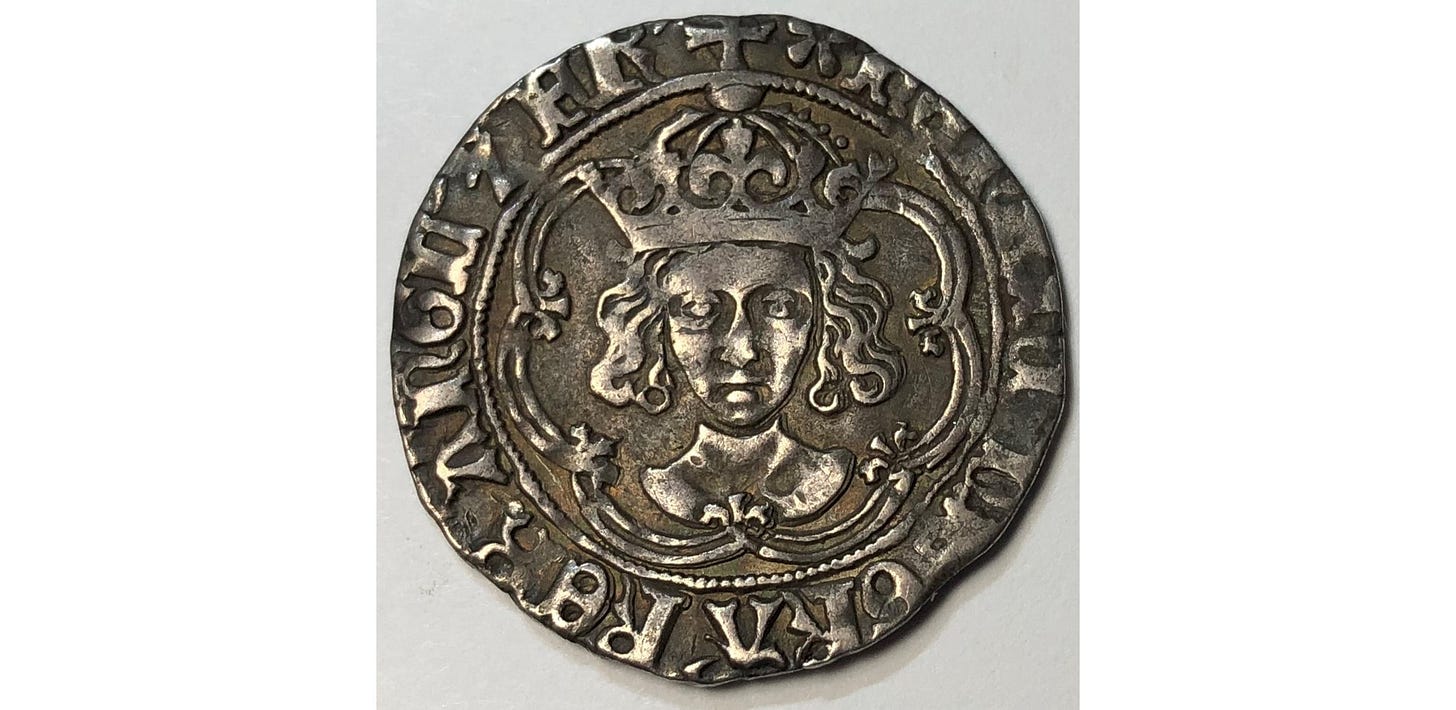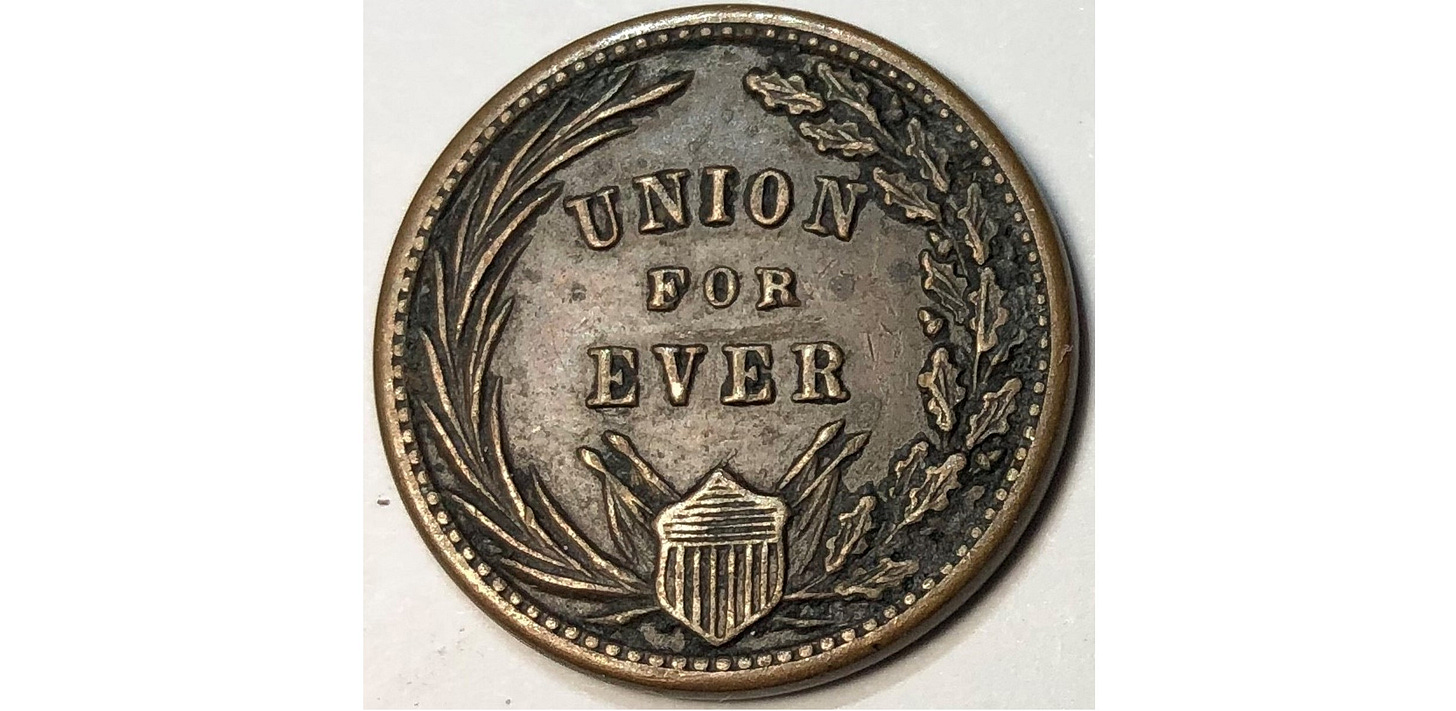Donald and Kamala's Toga Party
“Greed causes inflation and price controls are the cure,” say two econ majors.

ROMAN RUINS
In this, the year 2024 C.E., both major-party presidential candidates are emulating the Roman Emperor Diocletian, who believed that inflation springs from the greed and avarice of merchants and who insisted that the cure for inflation lies in price controls. His barely heeded, yet ruinous Edict on Maximum Prices (301 C.E.) stands as a founding document of the Really Futile and Stupid Gestures school of economic policy. No ideas in economic history have been more thoroughly debunked by logic and experience than the notions and deeds of Diocletian—whose price controls have been replicated, with similar results, by rulers across the millennia.
The Edict stands as history’s most remarkable example of the impotence and counterproductivity of price controls. The law capped prices on over 1,200 goods, and violations were punishable by death. Pay more than 16 denarii for a pound of “smoked Lucanian pork sausage” or more than 15,000 denarii for a “first quality Nervian hooded cloak, the color of a lion” or 125,000 denarii for an actual “lion (second class)” and both buyer and seller faced death by decapitation or crucifixion or stoning or whatever method was then in vogue. According to a controversial account by “Lactantius” (De Mortibus Persecutorum):
“Then much blood was shed over trifling and cheap articles; through fear, wares were withheld from market, and the rise in prices became much worse, until after the death of many men the law was through very necessity rescinded.”
Despite the threats and actual bloodshed, people largely ignored the Edict, thus breeding contempt for rule of law, while disrupting commerce. The Edict could not cure inflation, for it was simply a toxic placebo for a misdiagnosed illness. In Ancient Rome, as in Modern America, as in future Martian colonies, inflation is not caused by greed or avarice or wicked merchants, but rather, in the words of a great philosopher:
“Inflatio persistentes est semper et ubique phaenomenon pecuniarium.”
Or, if you prefer the original, untranslated version:
“Persistent inflation is always and everywhere a monetary phenomenon.”
Before the Edict, inflation had been roaring for years, thanks to the ongoing debasement of the Roman currency by monetary authorities—agents of Diocletian himself. Over time, authorities had bolstered the imperial treasury by reducing the precious metal content of coins and were continuing to do so. As the intrinsic value of coins shrank, sellers naturally and necessarily demanded more of them in exchange for goods. (“Last year, I sold you a fattened goose for 200 mostly-silver denarii. This year, I can’t afford to sell you a fattened goose for less than 500 of Diocletian’s crappy mostly-bronze-with-a-whiff-of-silver denarii.”)
(Quick aside: Despite all this Diocletian did pull off one successful stunt that was extraordinarily rare among Roman emperors. He retired from the throne, went home to live a quiet life, and died in his own bed of natural causes.)
DEMOCRATIC PARTY, REPUBLICAN PARTY, TOGA PARTY
1,719 years after Diocletian’s Edict, Kamala Harris has donned a toga and promised to replicate the emperor’s policies:
“On day one, I will work to take on price gouging and bring down costs. We will ban more of those hidden fees, we will take on corporate landlords and cap unfair rent increases, and we will take on Big Pharma to cap prescription drug costs for all Americans.”
Ms. Harris promises a “federal ban on price gouging by food producers and grocers,” thus threatening an industry vital to every American, whose profit margins are as thin as cash register paper. Acolyte Zephyr Teachout insists we should:
“Stop Calling Kamala Harris’ Anti-Price-Gouging Proposal Price Controls,”
because, apparently, if you don’t call price controls “price controls,” they’re not price controls. Teachout assures us that:
“Her plan to control inflation is not some leftist plot. It’s rooted in mainstream American legal tradition—and sorely needed.”
The only thing that Teachout gets right in that statement is the “American legal tradition” part. Richard Nixon was a lawyer, and he did issue similar price controls, helping to usher in a decade of raging inflation, crushing interest rates, economic hardship, and international disdain for the dollar. Several earlier presidents did likewise. And, of course, Roman law influenced the Founding Fathers’ thinking on American law.
Donald Trump referred to Harris’s plans as “SOVIET Style Price Controls,” and on this occasion, the ex-president’s hyperbolic rhetoric was correct. But then he donned his own toga for his own Diocletian cosplay:
“While working Americans catch up, we’re going to put a temporary cap on credit-card interest rates … We can’t let them make 25 and 30 percent.”
Long-dormant, suddenly active interest rate caps also contributed mightily to the miserable 1970s economy. Responding to Trump’s attacks on her price control ideas, Harris railed against Trump’s proposed tariffs, calling them:
“the Trump sales tax, which would be a 20% tax on everyday goods that you rely on to get through the month.”
This observation by Harris is spot-on correct—fair payback for Trump’s accurate characterization of her “Soviet-style price controls.” Other than its literary eloquence, Diocletian’s Edict is barely distinguishable from the rhetoric of Harris and Trump:
“Toward remedies, therefore, that have long been desired by the necessity of things, we spring into action. We care not for complaints.”
“Greed raves and burns and sets no limit on itself.”
“Who has so insensible a heart or has removed himself so far from human feeling that he can fail to know … to what an extent shameless pricing has spread.”
“Some people always are eager to turn a profit even on blessings from the gods: they seize the abundance of general prosperity and strangle it. Or again they make much of a year's bad harvest and traffic by the operations of hucksters.”
“Nor will he be, exceptionally, exempt from injury of this sort who supposes that he ought to hold back necessary kinds of food or service when he has them after the regulation of this statute, since the punishment ought to be even more serious for someone who initiates a scarcity than for someone who brandishes it contrary to the statute.”
“Moreover, this restraint of their shared activity will be obligatory among sellers and buyers whose habit is to go to ports and visit foreign provinces.”
(These quotes are from Dutch archaeologist Antony Kropff’s complete translation of the Edict on Maximum Prices. For amusement—and a better understanding of the Rube Goldbergesque nature of price controls—peruse the Edict’s list of price caps.)
But, contrary to the perceptions of Harris, Trump, and Nixon, American inflation, like Rome’s inflation, is a monetary phenomenon. Authorities debase the dollar to gain quick revenues. As in Rome, American sellers have no choice but to raise prices in response, and buyers have to pay more to sellers or go hungry or threadbare. American inflation is largely a function of Federal Reserve policies. The Fed, like those officials stamping coins in Diocletian’s time, determines the rate of inflation. Vilifying and threatening landlords, credit card companies, and grocers won’t stop American inflation any more than waving the death penalty at sausage-, cloak-, and lion-vendors did in Diocletian’s day. But as in the days of Diocletian (and Richard Nixon), price controls will undermine rule of law, disrupt commerce, and give license to further currency debasement by rulers.
The gods atop Mount Olympus must certainly have mocked Diocletian’s folly. Today, they are doubtless wetting their togas with laughter at the single most ironic aspect of politics in 2024: these boundless economic inanities are emerging from the first presidential election in U.S. history where both candidates were undergraduate economics majors. Paraphrasing Senator John Blutarsky:
“Seven years of college down the drain. Might as well run for president.”
BROTHELS, BINGLES, CLIPPERS, TOKENS, AND OPIUM
60+ years ago, my mother gave me a small box of old, exotic coins collected by her father. Since then, the collection grew to perhaps a thousand pieces—consisting mostly of items that are more curious than valuable—pieces that tell stories about history and economics. Knowing my interest in numismatics and in the history and economics lessons found in coins, David Beckworth interviewed me in 2019 for his Macro Musings podcast, produced by the Mercatus Center at George Mason University. The downloadable audio and complete transcript are embedded below, plus photos of three quasi-coins from my collection (two trade tokens and one Civil War token).
David and I talk at length about Diocletian’s misguided Edict, about a century of Medieval English kings who understood the importance of stable money, and about a medieval Danish king who didn’t. We cover odd pieces that Americans used in place of coins during monetary crises—including brothel tokens with which respectable people out West bought groceries and contributed to church collection plates. We discuss the U.S. trade dollar—esteemed by Chinese opium merchants, but hated by the U.S. government. Other topics include the odd coins that ordinary Americans hated and the one coin that only African Americans loved. There were bingles used by folks who fled from Dust Bowl to Alaska—people who sounded suspiciously like Sarah Palin. Here are the downloadable transcript and audio file









Mister, we could use a man like Milton Friedman again...
Why do politicians think they can get away with such lunatic notions? Well, maybe because so much of the electorate has been schooled to believe that government has the solution to every problem. All we need to cure inflation (or anything else) is the political will to do the right thing! Harris would probably say something like that if asked.